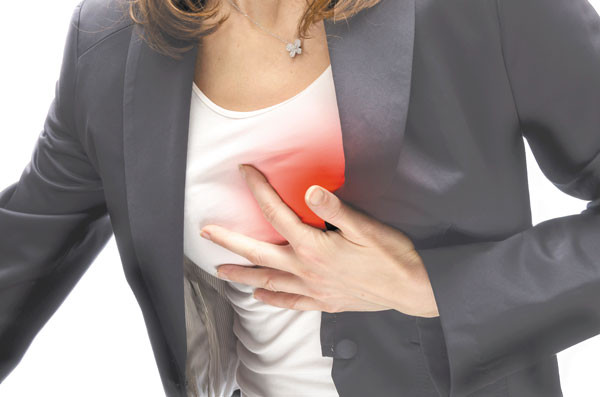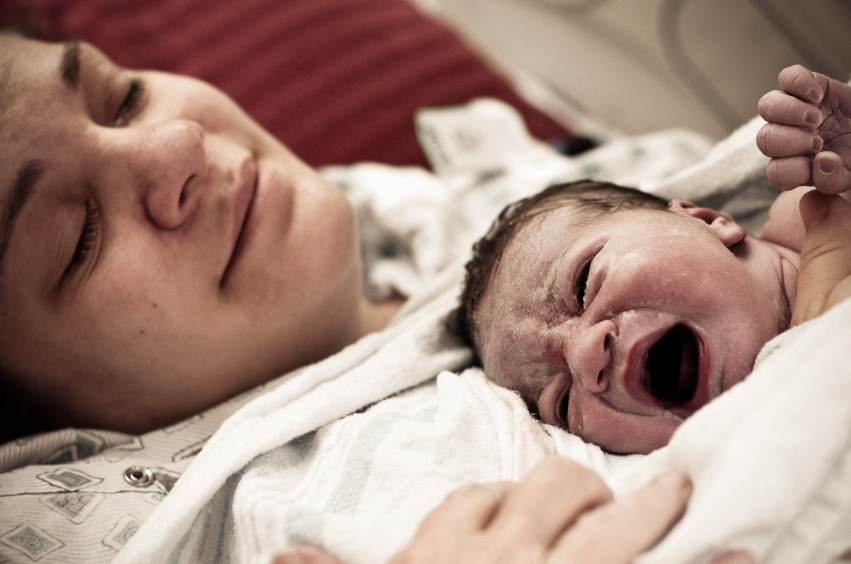
What are somatic workouts?

How to curb your stress eating

How to spot Parkinson’s disease symptoms

8 simple ways to reduce ultra-processed foods in your diet

Heart failure symptoms in women: How they’re different

GERD diet: Foods to avoid to reduce acid reflux

Strong is the new skinny

Everyday habits that sneakily weaken your bones

Don’t wait to get help for back pain

Correcting how you walk may ease osteoarthritis knee pain
Women's Health Archive
Articles
Mammograms identify heart disease risk
Research We’re Watching
Image: Frans Rombout/Thinkstock
When specks of calcium appear in ductal tissue on mammograms, they can indicate a small cancer. But when calcifications are found in the breast arteries, they haven't been a cause for concern. However, in recent years, physicians have begun to suspect that arterial calcifications in the breast, like calcifications in the coronary arteries of the heart, can be an early sign of cardiovascular disease.
A team of researchers at Mount Sinai St. Luke's Medical Center in New York City studied the test results of 292 women who'd had digital mammography and non-contrast CT chest scans within a year. None of the women were known to have heart disease. They found that 42.5% of the women had evidence of breast artery calcifications on mammography, and of these, 70% also had evidence of coronary artery calcification on their CT scans. Moreover, 63% of those whose CT images revealed coronary artery calcifications had breast artery calcifications as well. Over all, the results indicated that women with breast artery calcifications are three times as likely as those who don't to have coronary artery calcifications. The study was published online March 24, 2016, by JACC Clinical Imaging.
Can mammograms help reveal heart disease?
Research we're watching
Mammograms, which are widely used to detect early breast cancer, may also be an effective tool for spotting early signs of heart disease, a small study suggests.
The study, in the April JACC: Cardiology Imaging, involved nearly 300 women free of heart disease. All underwent both a mammogram and a computed tomography (CT) scan of the chest. The mammograms showed calcifications (which look like a chalked line) in the arteries within the breast in just over 40% of the women. These artery calcifications are different from the irregular spots of calcifications that may indicate early cancer.
Starting an osteoporosis drug? Here’s what you need to know
In its early stages, osteoporosis has no symptoms but causes millions of bone fractures every year, often resulting in loss of function and, disability and even death from the complications of the fracture. There are effective medications to prevent osteoporosis, but they can have serious (though rare) side effects. It’s best to talk discuss with your doctor to understand all your options and make an informed decision on how to best protect your bones.
The heart attack gender gap
Heart attacks strike men at younger ages than women. But survival rates are worse in women. Why?
Compared with men, women are less likely to recognize and act upon the symptoms of a heart attack.
Image: zaganDesign/Thinkstock
Imagine someone in the throes of a heart attack. If you picture a man clutching his chest in agony, that's understandable. At younger ages, men face a greater risk of heart disease than women. On average, a first heart attack—the most common manifestation of this prevalent disease—strikes men at age 65. For women, the average age of a first heart attack is 72.
Over 35 and expecting: Is it safer to give birth “early”?
For women having children over age 35, the decision to induce labor is usually based on an increased risk of stillbirth. The duration of labor also factors into the decision, as does the possibility that induction could increase the chance of a cesarean birth, though current medical evidence does not necessarily support this assertion.
Thyroid disease and breast cancer: Is there a link?
Researchers have wondered for a long time whether there might be a link between excess thyroid hormone and an increased risk of breast cancer. High levels of thyroid hormone have been shown to mimic estrogen, which fuels many breast cancers. A new study has suggested that there may indeed be a link — but it’s important to put the results into context.
An obstetrician (who is also a feminist) weighs in on the CDC’s “no birth control, no drinking” recommendation
The CDC recently advised all sexually active women of childbearing age, and who aren’t on birth control, to avoid alcohol completely because of potential harmful effects to an unborn child. The science behind the recommendation is sound, but the way it was delivered has raised quite a few eyebrows. In this piece, Dr. Ricciotti examines where the message fell short and describes how she emphasizes shared decision-making and autonomy when she counsels her patients.
Men's hearts age differently from women's
Here is one more way men and women are different: research published online Oct. 20, 2015 in Radiology found that male and female hearts do not age the same way.
For the study, researchers reviewed MRI heart scans performed on almost 3,000 older adults, ages 54 to 94, without existing heart disease. (Scans were given 10 years apart.) The scans showed that in both sexes, the main heart chamber—the left ventricle, which fills with and then forces out blood—gets smaller with time. As a result, less blood enters the heart, and less gets pumped out to the rest of the body.
How can I tell if I'm sleeping enough?
Ask the doctor
Q: I have always had difficulty sleeping. Since I have taken to heart the advice for good sleep habits, I think I'm sleeping better, but I'm not sure. I'm in bed about 8.5 hours, but am often restless and get up to go to the bathroom a couple of times during the night. Is there a way to compute how much sleep I'm actually getting?
A: Adequate sleep is an important part of health. While the exact amount needed to maximize health and wellness is not totally clear, many experts recommend around seven to nine hours per night. Adequate sleep is associated with memory, improved mood, better weight control, improved diabetes control, greater resistance to colds, and fewer accidents.

What are somatic workouts?

How to curb your stress eating

How to spot Parkinson’s disease symptoms

8 simple ways to reduce ultra-processed foods in your diet

Heart failure symptoms in women: How they’re different

GERD diet: Foods to avoid to reduce acid reflux

Strong is the new skinny

Everyday habits that sneakily weaken your bones

Don’t wait to get help for back pain

Correcting how you walk may ease osteoarthritis knee pain
Free Healthbeat Signup
Get the latest in health news delivered to your inbox!
Sign Up









